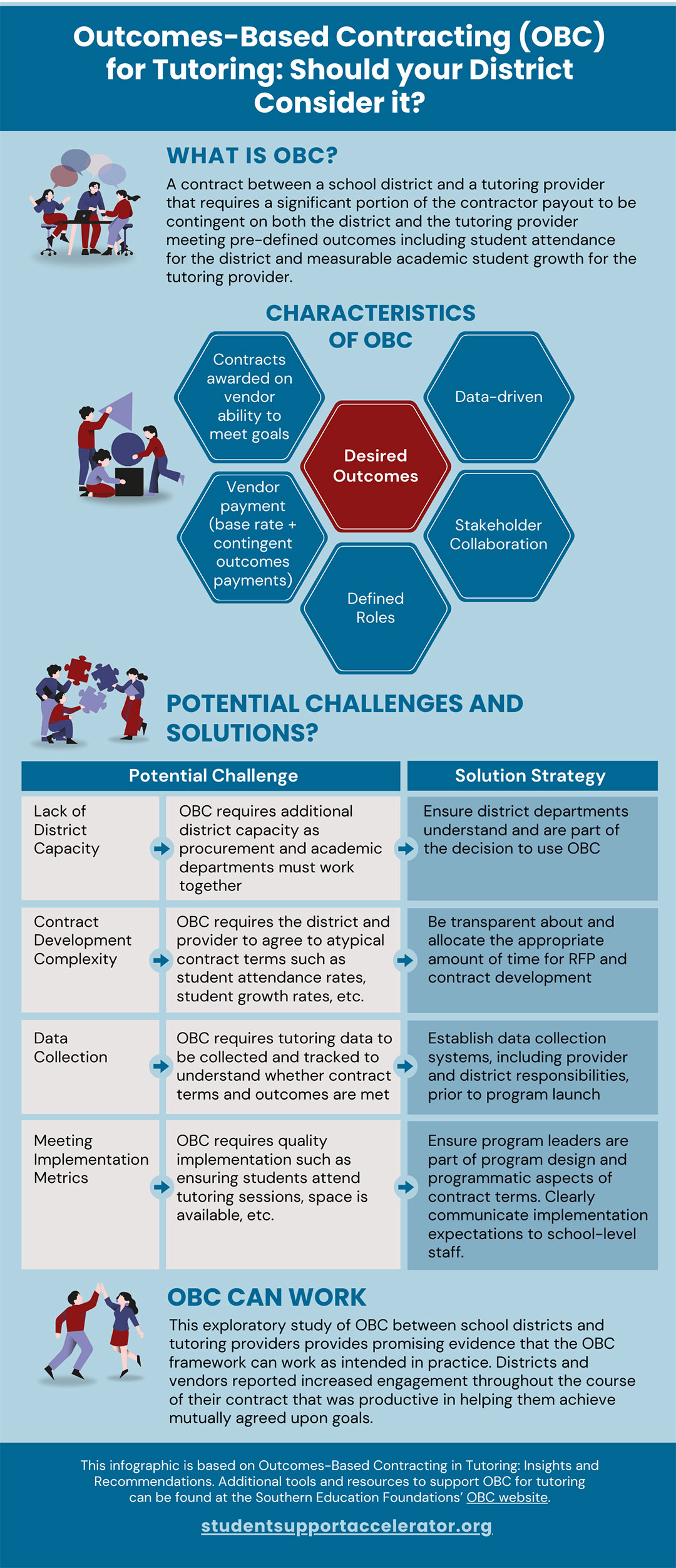The research brief reports findings from an exploratory study describing the perspectives of districts and providers to better understand OBC’s potential for education systems. The accompanying infographic highlights what OBC is, its key characteristics, and challenges and solutions for successful implementation.
Contracting relationships between public school districts and vendors are a common feature of education provision in the United States. Contracted services in schools can range from broad, essential functions such as school meals, bussing, and janitorial services to more specialized services such as the analysis of student data, curriculum mapping, and professional development for staff members. The strength of these contracting relationships depends on vendors providing consistent services and on payment between vendors and districts. Providers are paid with public funds, and communities may expect clear oversight of contracts and transparency about their effects on valued outcomes. Transparency also can help districts make decisions about whether or not to continue contracts with providers.
Outcomes-based contracting (OBC) aims to ensure vendor performance and efficacy by building expectations for transparency and effectiveness directly into legal agreements. An OBC contract includes a portion of payment contingent to the provider based on the attainment of agreed-upon success metrics set forth by the buyer, in this case, the school district (Corbett et al., 2023). While OBC, also referred to as Pay for Success funding model, has been used in other areas of the social sector, such as in permanent support housing (Walsh et. al., 2020), workforce development (Andreason, 2016), and vaccine availability (Snyder et.al., 2011), the model is quite new in the public education sector.
